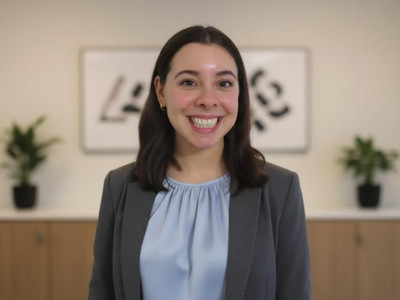Therapy for Substance Use & Unhealthy Coping in Ontario
Turning to substances or other coping strategies can sometimes feel like the only way to get through stress, pain, or overwhelming emotions. While these strategies may provide short-term relief, over time they can create bigger challenges. At Tiny Therapy Collective, we provide supportive, non-judgmental online therapy for substance use and unhealthy coping strategies across Ontario. Our goal is to help you find healthier ways to cope, rebuild balance, and create lasting change.
Therapists in Our Practice Offering Support with Unhealthy Coping Strategies
Understanding Unhealthy Coping Strategies
Unhealthy coping doesn’t always look the same. For some, it means relying on alcohol or drugs. For others, it can show up as overworking, emotional eating, or other habits that numb feelings. These patterns are often rooted in stress, trauma, or unresolved emotions.
Therapy provides a safe space to understand why these patterns developed, how they’re affecting your life, and what healthier coping tools can take their place.
Common Coping Patterns We Help With
Our therapists support clients dealing with:
-
Alcohol or drug use
-
Overeating or emotional eating
-
Excessive screen time, gaming, or online use
-
Overworking or people-pleasing to avoid feelings
-
Self-harm or risky behaviours
No matter the strategy, the goal of therapy is the same: to help you reduce harm, increase self-understanding, and build coping skills that support long-term wellbeing.
Embarking on the journey of recovery often involves seeking support, and therapy plays a pivotal role in this transformative process.
Some of the benefits can include:
Understanding the Root Causes:
Therapy provides a safe and non-judgmental space for individuals to explore the root causes of their substance use. By delving into past experiences, trauma, or underlying mental health issues, therapy helps uncover the deeper factors contributing to the reliance on substances.
Individualized Treatment Plans:
Every person's journey through substance use is unique, and therapy tailors treatment plans to meet individual needs. Therapists work collaboratively with clients to develop personalized strategies, addressing specific challenges and fostering a sense of ownership in the recovery process.
Coping Skills Development:
Substance use often serves as a coping mechanism for underlying emotional pain or stress. Therapy equips individuals with healthier coping skills, helping them navigate life's challenges without resorting to substances. Learning effective coping mechanisms is crucial for sustained recovery.
Relapse Prevention:
Therapists work with individuals to identify triggers and develop strategies to prevent relapse. Through relapse prevention techniques, therapy empowers individuals to recognize potential pitfalls and respond proactively to maintain their recovery journey.
Rebuilding Relationships:
Substance use can strain relationships with family and friends. Therapy facilitates the healing process, providing a space for individuals to repair and rebuild connections. Family therapy may also be incorporated to foster understanding and support within the family unit.
Addressing Co-occurring Disorders:
Many individuals with substance use challenges also struggle with co-occurring mental health disorders. Therapy addresses these concurrent challenges, offering comprehensive treatment that considers both substance use and mental health issues simultaneously.
Enhancing Self-Esteem and Self-Discovery:
Substance use can erode self-esteem and self-worth. Therapy focuses on rebuilding a positive self-image and encourages self-discovery. Individuals explore their values, aspirations, and strengths, fostering a renewed sense of purpose and identity.
Creating Accountability:
Therapy establishes a system of accountability, providing a consistent and supportive environment for individuals to reflect on their progress. Regular sessions encourage self-reflection and commitment to the recovery journey.
Long-Term Lifestyle Changes:
Therapy goes beyond immediate cessation of substance use; it helps individuals envision and work towards long-term lifestyle changes. Therapists collaborate with clients to set goals, implement positive habits, and create a fulfilling life in recovery.
How Therapy Supports Recovery & Growth
Working with a therapist can help you:
-
Explore the root causes behind unhealthy coping patterns
-
Develop healthier strategies to manage stress and emotions
-
Learn mindfulness and grounding tools to stay present
-
Build self-compassion and reduce shame
-
Strengthen relationships and support systems
-
Create meaningful goals that support your future
Online Therapy for Substance Use Across Ontario
We offer virtual counselling for substance use and coping strategies so you can access support no matter where you live in Ontario. Online sessions are private, secure, and flexible, allowing you to attend from the safety and comfort of your own space.
What to Expect in Therapy
-
Free consultation to connect with a therapist and discuss your needs.
-
Early sessions focus on safety, stabilization, and goal setting.
-
Ongoing sessions include skill-building, reflection, and practice of healthier coping strategies.
-
Long-term growth comes from replacing old patterns with tools that support resilience and wellbeing.
FAQs About Substance Use Counselling
Do I need to be ready to quit before starting therapy?
No. Therapy can meet you wherever you are, whether you’re exploring your relationship with substances or ready to make changes.
Will I be judged for my coping patterns?
Absolutely not. Our therapists provide compassionate, non-judgmental support so you feel safe sharing your experiences.
Is therapy for substance use effective online?
Yes. Many people prefer online sessions because they feel safer and more comfortable opening up in their own environment.
Take the First Step Toward Change
Recovery is not about perfection; it’s about progress. With the right support, you can let go of patterns that no longer serve you and build a healthier way forward.







